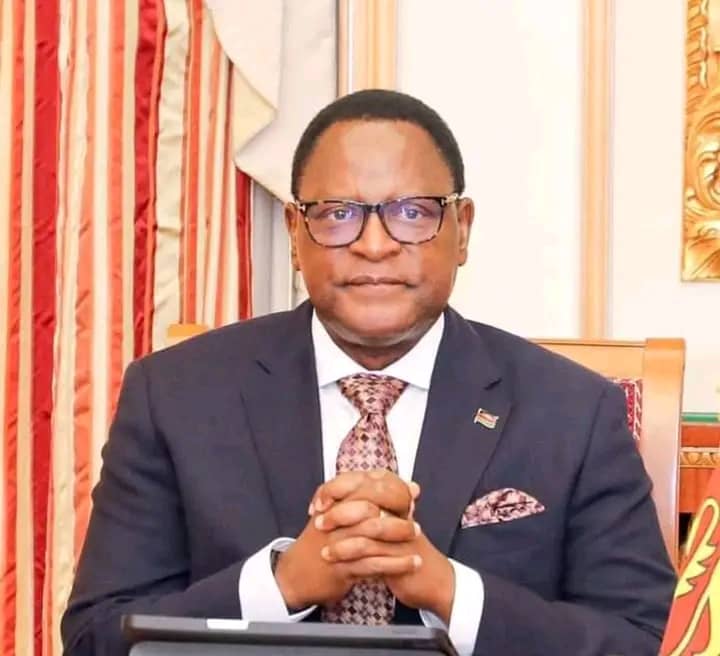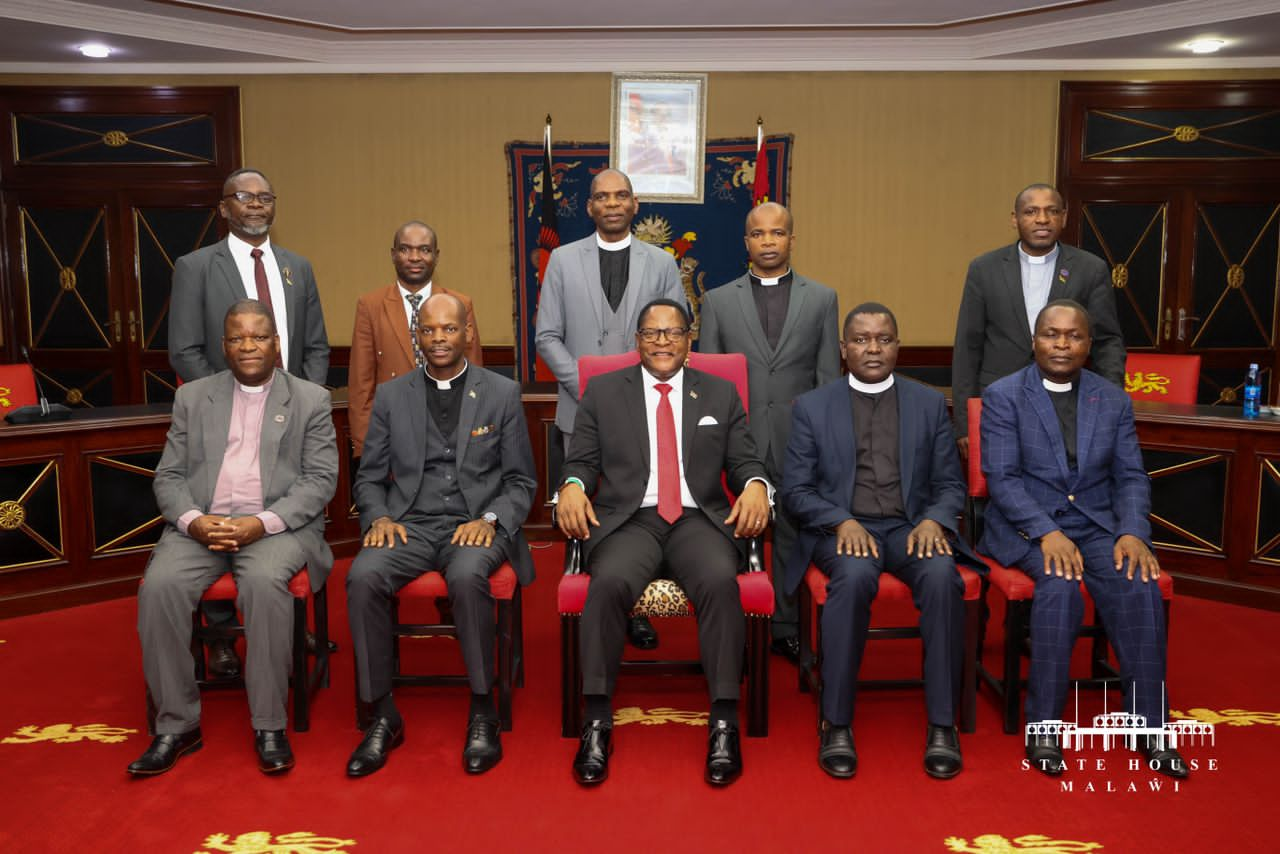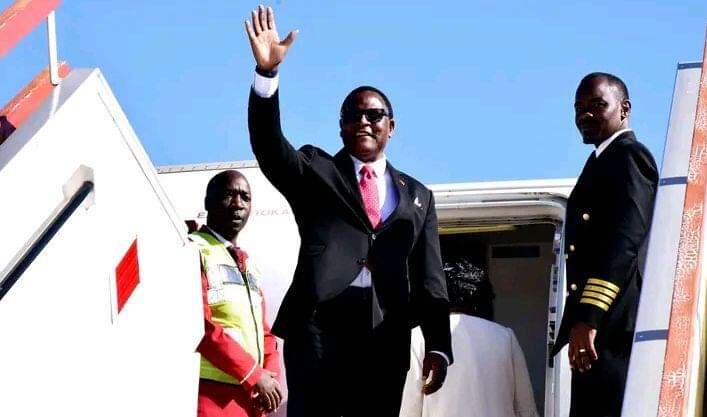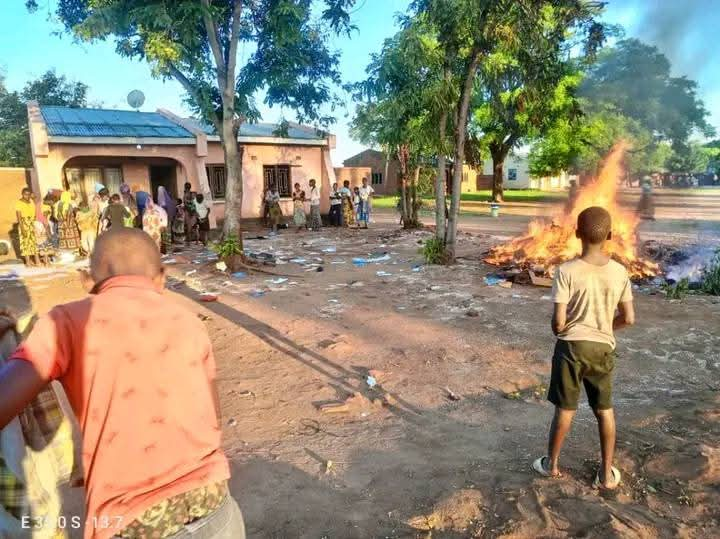By Burnett Munthali
In what can only be described as a bitter New Year’s joke to the nation, President Lazarus Chakwera’s recent Cabinet reshuffle and promised “reconfiguration” has left Malawians questioning his ability to deliver on his campaign promises. Hours after proclaiming “change,” “reconfiguration,” and a “new beginning” for the country, the president fired a single old man, accepted the resignation of a woman who had already stopped attending work months ago, and shuffled around a few faces. Even more disappointing, he proceeded to increase the size of the Cabinet — in stark contrast to his promises of austerity and lean governance made just last November.
During his election campaign and subsequent public addresses, President Chakwera repeatedly promised the Malawian people that his administration would be different. His rhetoric was filled with pledges of a lean government and promises to address the economic challenges faced by the nation. However, in a series of actions that followed his New Year speech, he failed to demonstrate any genuine commitment to these pledges.
The reshuffle saw the reallocation of familiar faces in key positions, while a bloated Cabinet emerged that does little to address the pressing issues of governance. The size of the Cabinet only increased, with several new deputy ministers appointed, further deepening the government’s dependence on political patronage. In a time when Malawians are struggling to access basic needs, the president’s decision to expand his Cabinet can only be seen as a misstep — a contradiction to the urgency for fiscal prudence and the need to cut back on wasteful spending.
One of the most glaring contradictions in this reshuffle was the retention of individuals in key positions, even though they have presided over some of the most significant failures of Chakwera’s administration. The Ministries of Finance, Agriculture, and Public Service remain largely unchanged, despite being areas where Chakwera’s government has been repeatedly criticized for inefficiency, corruption, and a lack of results.
For example, the Ministry of Finance, under the leadership of Minister Chithyola Banda, has continued to struggle with economic challenges, including inflation and an unsustainable debt burden. Yet, Banda remains in power, defying the very notion of reconfiguration that the president claimed to be working towards.
Likewise, Agriculture, which is a key sector for the majority of Malawians, remains plagued with policy failures and a lack of vision. Despite repeated calls for reforms and revitalization of the sector, Chakwera’s administration has shown little action. The decision to retain the status quo in these crucial sectors suggests that the promised “change” is nothing more than rhetoric.
The retention of these failed ministers sends a clear message that the president has little intention of addressing the fundamental issues that have plagued his administration. The reshuffle, rather than inspiring hope, has only served to reinforce the status quo.
Politically, the reshuffle seems to be more about appeasing party loyalists and rewarding those who have supported the president, rather than making any meaningful changes to improve governance. This move is expected to alienate many Malawians who had hoped for real reform, especially given the promises made during the 2020 elections.
Economically, the implications are even more dire. With an increasingly bloated Cabinet, the financial resources that could have been used to address Malawi’s many challenges are now being channeled into maintaining a large government. This will only further strain the country’s resources, already stretched thin due to debt and the ongoing economic crisis. At a time when austerity is crucial, the president’s failure to live up to his promises signals a lack of resolve and foresight.
Socially, the president’s decisions contribute to a growing sense of disillusionment among the population. Malawians are increasingly frustrated by a government that talks big but fails to deliver. The country’s youth, who were promised jobs and opportunities under Chakwera’s leadership, continue to face unemployment and limited prospects. Rural areas, where agriculture remains the backbone of the economy, are still grappling with insufficient support, and communities are struggling to make ends meet.
In our review of this disappointing reshuffle, we take a closer look at the individuals who have been entrusted with the task of leading Malawi in these trying times:
- Finance Minister, Chithyola Banda: Grade – D. Despite overseeing an economy in decline, the Minister of Finance remains entrenched in his position, with little evidence of meaningful reforms. His handling of Malawi’s fiscal challenges has been widely criticized, yet he is retained without any changes.
- Agriculture Minister: Grade – F. Agriculture remains one of the key sectors in Malawi, but there has been no significant progress in addressing the challenges facing farmers and the agricultural industry. The lack of innovation and reform in this critical sector has left many in rural areas struggling.
- Public Service Minister: Grade – C. While not as widely scrutinized as other ministers, the Public Service Minister has failed to address inefficiencies within the civil service, where corruption and mismanagement are rampant.
- Other Ministers: Grade – C. Many of the other ministers retained in this reshuffle have done little to address the pressing issues in their respective sectors, and their retention reflects the lack of genuine reform.
In conclusion, President Lazarus Chakwera’s reshuffle and promises of change have proven to be nothing more than a political maneuver. His actions have done little to address the concerns of the Malawian people, leaving the country in a precarious position. His decision to retain failed ministers and expand the Cabinet only serves to undermine his credibility and reinforce the notion that this administration is more interested in political patronage than meaningful reform.
With the country already on its knees, Malawians deserve more than empty promises. President Chakwera has a limited window to change course before the upcoming elections, but if his actions continue to speak louder than his words, he risks losing the trust of a disillusioned electorate. The time for change is now — but whether Chakwera will deliver on his promises remains to be seen.




